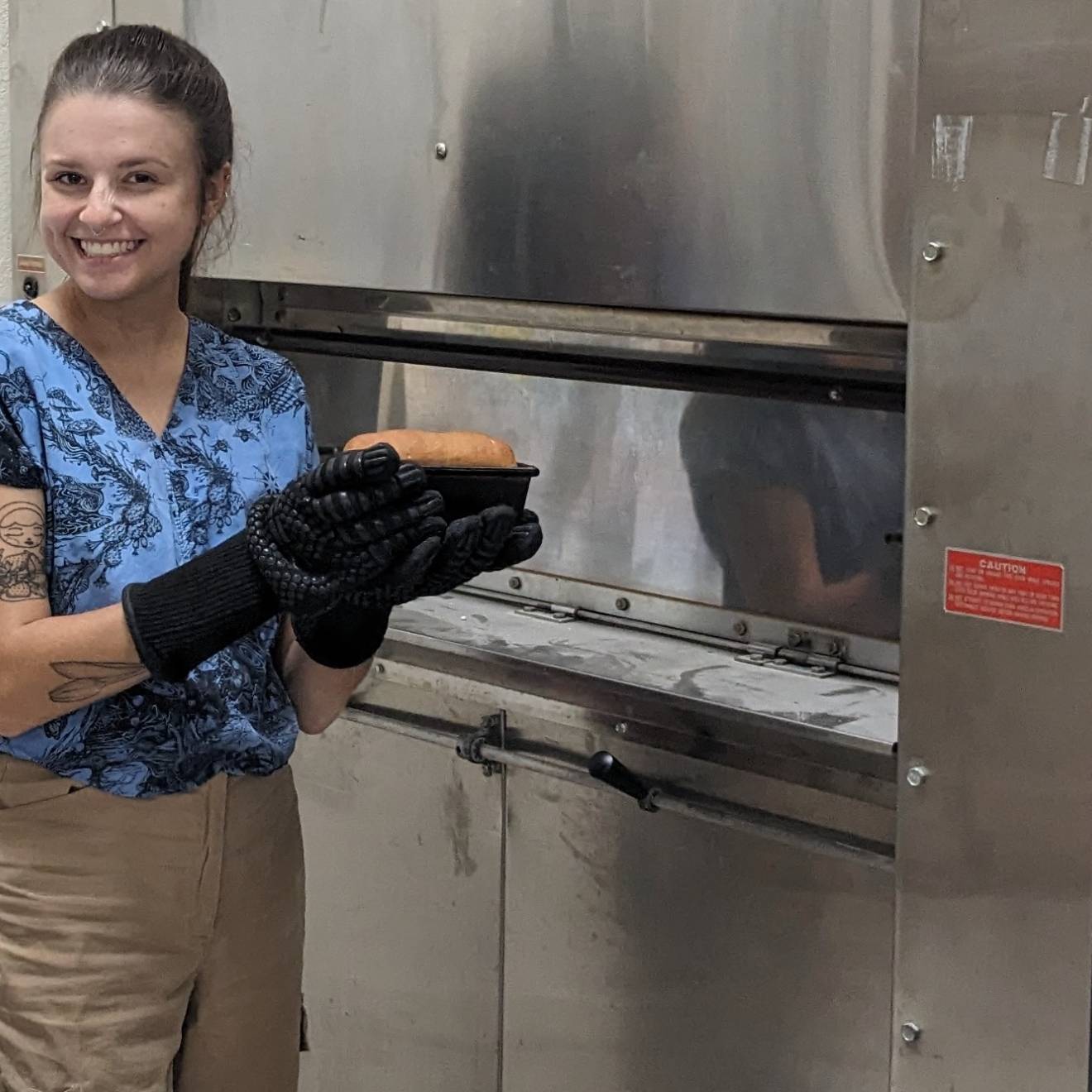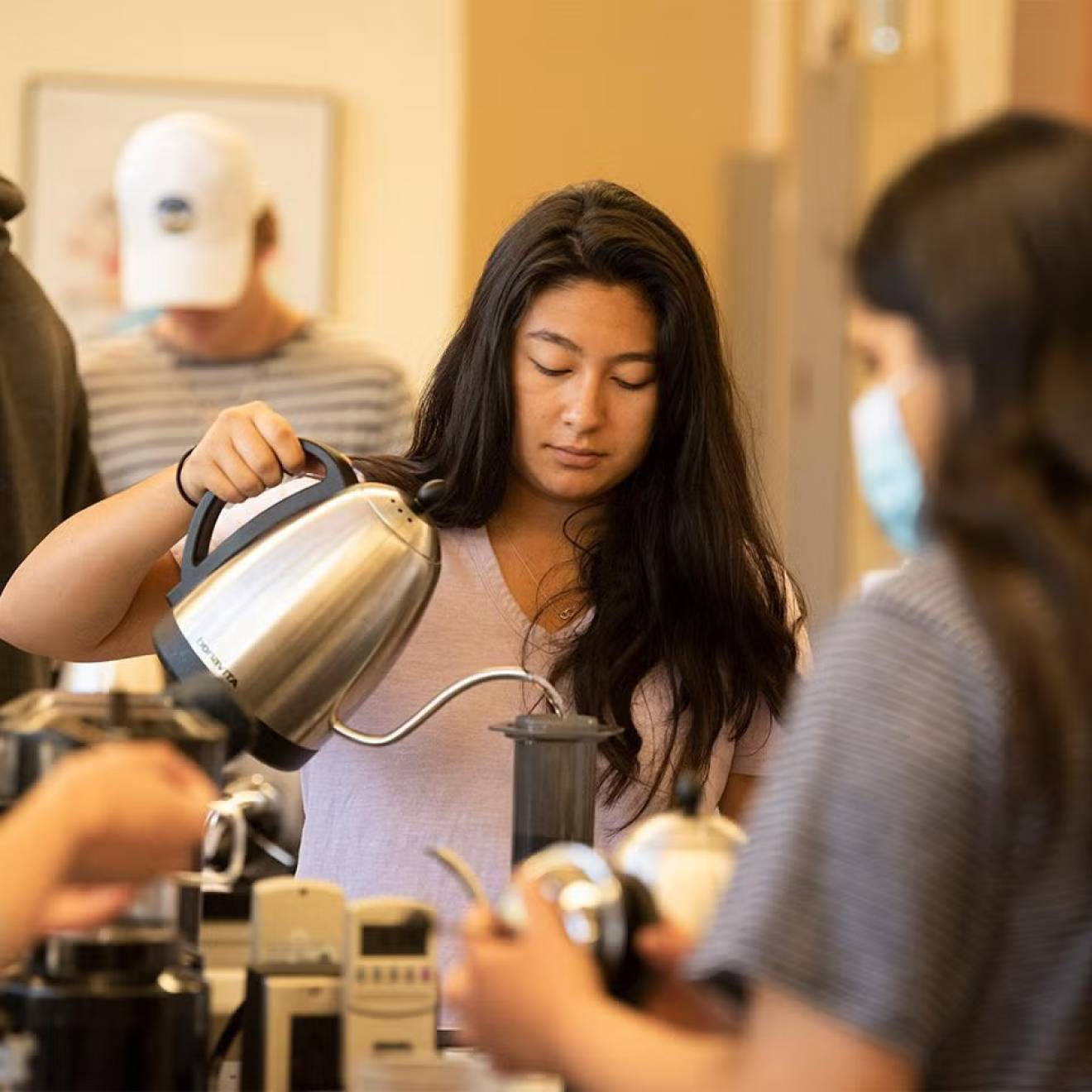Pat Bailey and Andy Fell, UC Davis

The University of California, Davis, and the California Strawberry Commission today (Feb. 9) signed an agreement for a new future for the public strawberry breeding program at UC Davis.
As part of this renewed commitment to a public breeding program that creates new varieties for California’s strawberry farmers, UC Davis announced the hiring of a new breeder for the Strawberry Breeding Program.
Steven J. Knapp, a plant scientist with highly credentialed teaching and research experience at two other U.S. land-grant universities as well as international plant genomics experience in the commercial sector, has accepted the university’s offer to lead the program.
“We are thrilled to have Steve join us as we design a new strawberry breeding program for the 21st century,” said Helene Dillard, dean of the College of Agricultural and Environmental Sciences, which is home to the strawberry breeding program.
“He brings with him expertise in plant genomics and genetics, as well as great breadth of experience in directing a variety of crop-breeding teams in the United States and around the world,” Dillard said.
Lawsuit settlement
Highlights of the legal settlement include further partnership opportunities for the UC Davis Strawberry Breeding Program and the California Strawberry Commission.
Over the next five years, UC Davis will release new strawberry varieties that will be available to all farmers, and the California Strawberry Commission will assist UC Davis in its identification of new commercial varieties. As part of the settlement, a new strawberry advisory committee will be formed, comprising university representatives, strawberry farmers and commission representatives.
Since 1956, California’s strawberry farmers have supported the UC Davis Strawberry Breeding Program through the California Strawberry Commission (formerly the California Strawberry Advisory Board). Annual contributions and research grants through the commission have contributed millions of dollars to support the development of strawberry varieties uniquely adapted to California’s exceptional growing environment.
The settlement brings to a close legal disagreements dating back to October 2013, when the commission filed a lawsuit against the university related to the strawberry breeding program’s research agreement with the commission. Both that lawsuit and the university’s counter suit, filed in October 2014, are ended by this week’s settlement.
“The hiring of the new plant breeder and the commitment to continue the public program were critical to resolving the dispute,” said Rick Tomlinson president of the California Strawberry Commission. “Combined with the leadership of Dean Helene Dillard, the strawberry breeding program is positioned to continue releasing exceptional new plant varieties.”
Karen Ross, secretary of the California Department of Food and Agriculture, also voiced confidence that the public breeding program will move forward to identify the best plant varieties for California strawberry farmers
“I am very pleased to see UC Davis and the California Strawberry Commission move into a new era of collaboration,” Ross said. “With a talented new plant breeder to lead the program, the commitment of the chancellor and the dean, and an industry advisory committee to provide input on the program’s vision, we have all the ingredients for a partnership that will benefit the California strawberry industry and the university for years to come.”
About the new breeder
Knapp brings a wealth of research experience to the breeder’s position. He served on the faculty of Oregon State University in the Department of Crop and Soil Science for 19 years from 1985, and then joined the faculty of the University of Georgia, Athens, in the Institute of Plant Breeding Genetics and Genomics for five years.
He comes to UC Davis most recently from Monsanto’s Vegetable Research and Development program in Woodland. At Monsanto, he was the global director for two years for breeding of cucurbit crops including melons, squash and cucumbers, and then the global director for vegetable breeding technology for three years.
“The strawberry industry and production climates in California are unparalleled, ” Knapp said.
“I look forward to serving as an ambassador for the public breeding program on behalf of the university and state, and working with leaders from industry and academia — as well as stakeholders and colleagues throughout California and abroad — to tackle scientific challenges in strawberry production, breeding, genetics and genomics,” he said.
Knapp received his doctoral degree in agronomy and plant breeding from the University of Nebraska, Lincoln, and holds master’s and bachelor’s degrees in plant science from the University of Nevada, Reno.
About the UC Davis Strawberry Breeding Program
The UC Davis Strawberry Breeding Program is the world’s most successful program of its kind, supplying more than half of the world’s strawberry varieties.
The University of California has been breeding strawberries and then releasing cultivated varieties to the agricultural industry since the 1930s. The program was terminated during World War II and then restarted at UC Davis in 1952 at the request of California’s strawberry farmers, who have financially supported the program every year since 1956.
The breeding program has been highly successful, including development of new, commercially useful varieties of strawberry plants that have higher quality berries, are less vulnerable to pests and diseases, and can be grown more efficiently.
Due in large part to the development of these new varieties, average strawberry yields have grown from 6 tons per acre in the 1950s to 30 tons per acre today, and the berries now grown on California farms are tastier, longer-lasting, and more resistant to pests and disease.
About the California Strawberry Commission
The California Strawberry Commission is a state government agency charged with conducting research to support California’s strawberry industry. With an emphasis on sustainable farming practices, the commission works with strategic partners focusing on production and nutrition research, food safety training and education, marketing and communications, trade relations and public policy.

